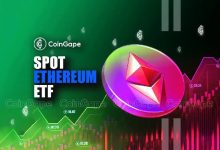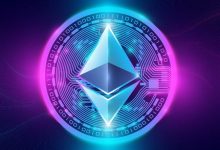Solana Cofounder Just Compared Ethereum to Windows 95, Community Reacts

Solana (SOL) cofounder Anatoly Yakovenko has muddled the Ethereum (ETH) hype after he compared the smart contract pioneer to Windows 95 operating software. Speaking on the Unchained Podcast with Laura Shin, Yakovenko argues that Solana is ahead of Ethereum and can be called Windows 2000, which in the evolution of computers is a proper operating system that can process multiple applications at a time.
The Ethereum versus Solana debate is a volatile and unending one because the former pioneered the industry and set the pace for Solana. Anatoly Yakovenko himself has often come out to recuse himself from any inflammatory comparison between Solana and Ethereum, as he believes both can coexist.
However, in the podcast, the Solana cofounder said the move to build Windows 2000 is necessary as the current bottleneck in the blockchain world, where a single NFT buzz can lead to a gas fee spike in an unrelated transaction, somehow negates what the proponents of the industry are pitching.
Despite his clear position that is far from disdain for Ethereum, the community showed division in the comment, with one party supporting Ethereum and the other supporting Solana.
Who laughs last? Solana or Ethereum
There is one underlying similarity between both blockchain networks, and that is the ability to host decentralized applications (DApps). The difference lies in their respective speed, cost and general public perception.
Despite its woes, Ethereum is currently the most favored of the lot and boasts of a decentralized finance (DeFi) total value locked (TVL) of $28.661 billion against the $703.46 million of Solana. Only recently did Solana’s trading volume exceed those of Ethereum L2s for the first time.
While these figures are significant, both protocols are building for the future, and Solana’s goal remains to become the Apple of the crypto ecosystem.
The next years will determine a lot about which of the two, or other Ethereum-killers, will stand the test of time.





 Bitcoin
Bitcoin  Ethereum
Ethereum  Tether
Tether  USDC
USDC  Dogecoin
Dogecoin  Cardano
Cardano  TRON
TRON  Chainlink
Chainlink  Bitcoin Cash
Bitcoin Cash  LEO Token
LEO Token  Litecoin
Litecoin  Dai
Dai  Stellar
Stellar  Monero
Monero  Ethereum Classic
Ethereum Classic  Cronos
Cronos  Stacks
Stacks  OKB
OKB  Hedera
Hedera  Cosmos Hub
Cosmos Hub  Maker
Maker  KuCoin
KuCoin  Theta Network
Theta Network  Gate
Gate  Algorand
Algorand  Polygon
Polygon  NEO
NEO  EOS
EOS  Tether Gold
Tether Gold  Tezos
Tezos  Zcash
Zcash  TrueUSD
TrueUSD  Synthetix Network
Synthetix Network  IOTA
IOTA  Bitcoin Gold
Bitcoin Gold  Holo
Holo  Dash
Dash  0x Protocol
0x Protocol  Zilliqa
Zilliqa  Siacoin
Siacoin  Enjin Coin
Enjin Coin  Ravencoin
Ravencoin  Basic Attention
Basic Attention  Qtum
Qtum  Decred
Decred  Ontology
Ontology  NEM
NEM  Lisk
Lisk  Nano
Nano  Numeraire
Numeraire  Waves
Waves  Pax Dollar
Pax Dollar  DigiByte
DigiByte  Status
Status  Huobi
Huobi  Hive
Hive  Steem
Steem  BUSD
BUSD  Ren
Ren  OMG Network
OMG Network  Bitcoin Diamond
Bitcoin Diamond  Bytom
Bytom  Kyber Network Crystal Legacy
Kyber Network Crystal Legacy  HUSD
HUSD